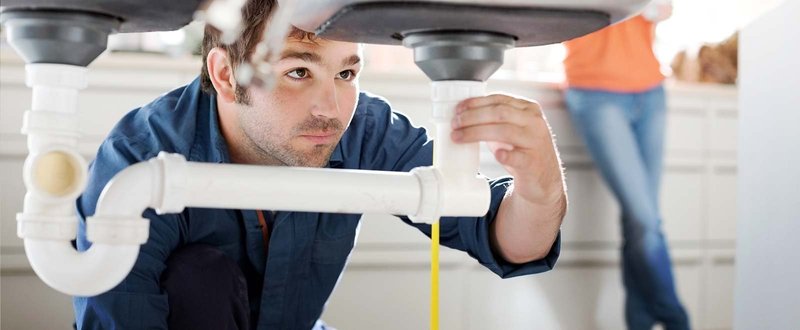Where to start off?
If you think that you may probably be good for the plumber’s job and you have all the prerequisite propensities and skills to become one, you have still quite a lot to do to be able to function legally and be successful at the job. The thing is that it doesn’t really matter whether you had already obtained quite an experience in plumbing sphere (for instance, if you helped your father with his work and learned from him) by the time you decided to turn it into your profession and full-time job or even business, or you are just at the beginning of the journey, or you’re just figuring out what it takes to be a plumber and how you’re supposed to perform this or that task, fix and install this or that thing, you’ll have to go through the basic steps I’ll mention below to be able to work with people and companies to provide your services.
Of course, having some basic plumber’s skills and previous experience won’t make you harm. In fact, you’ll only benefit from that, as you’ll have more knowledge and practice as compared with people, who haven’t done any of it before and who’re just starting their professional training. But, unfortunately, there’re some specific requirements you have to meet to be able to obtain a license to work as a plumber and earn money that way. And, they include professional training. That’s why beginners, who’re willing to become a plumber, shouldn’t worry about the fact that they haven’t worked at the sphere before. And, that’s also why the guideline of how to become a successful licensed plumber is applicable for both categories of people, who’re being introduced to the profession.
However, before you proceed to fulfillment of the following steps and commit to the quite lasting process, I want you to think carefully if you’re going to fit the job, if the job fits you and if that is really what you’re willing to do considering your career. Bear in mind, that plumbing is one of the really labor intensive jobs that require constant learning and perfection, years of working experience before becoming a decent professional. Then, most likely, you’re going to develop your own plumbing business at some point. And, that step involves managing skills to grow a profitable company.
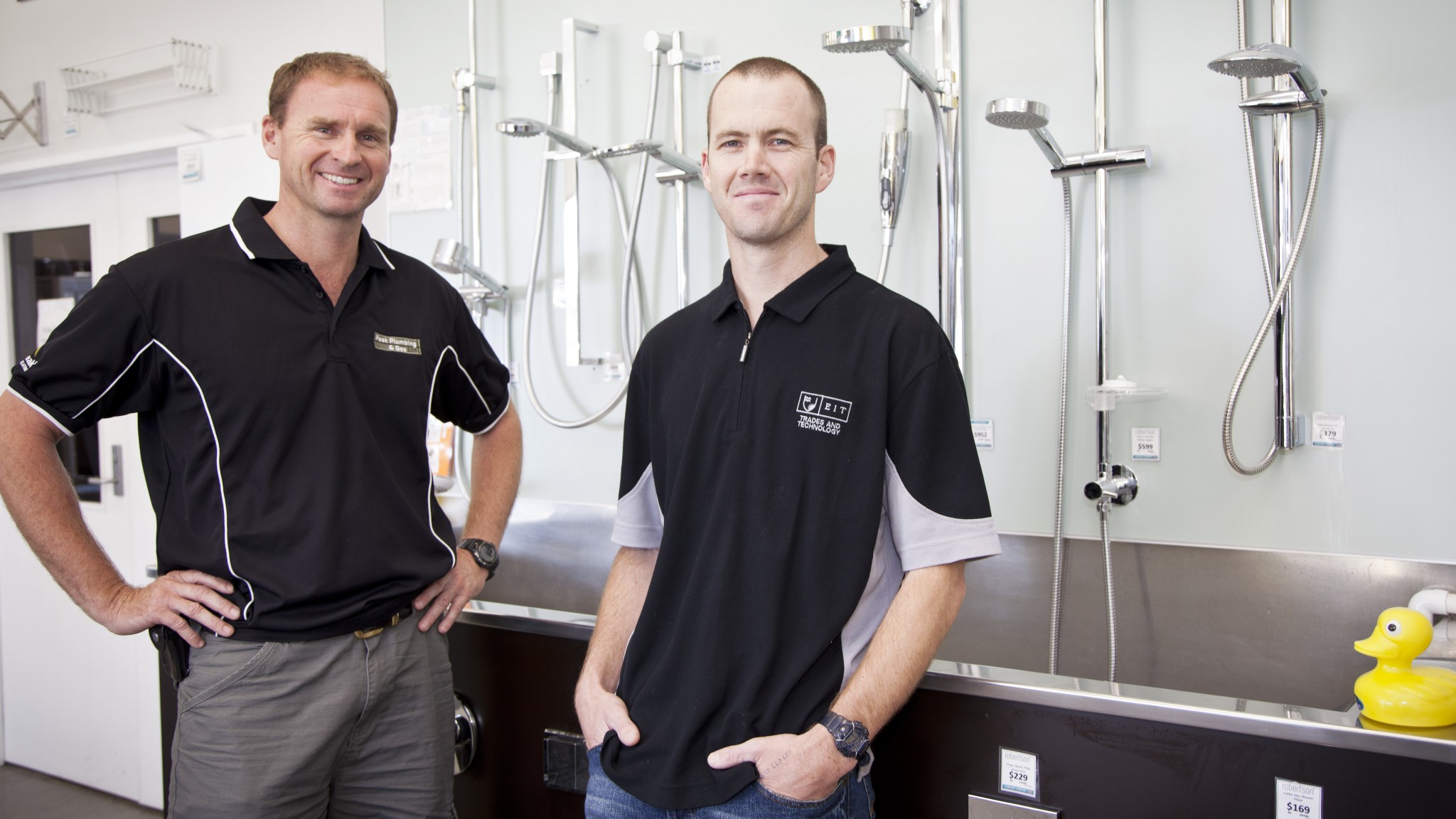
Nevertheless, plumbing is the sphere where you can reach high results and grow as a part of a plumbing company, or as an independent plumber, or, once you think you’re ready, as an owner of a separate plumbing service. However, you’ll need to be a licensed specialist to enter the profession and start earning money.
As most of the states require plumbers to get license to provide their services legally, I’ll walk you through the steps of obtaining one and starting your work as a plumber.
Steps to become a licensed plumber
Step 1. School diploma requirements for a plumber
Obviously, plumbers need not only to graduate from school, but also get their basic foundation in such subjects as math, English, physics and computer science. Those are the subjects you have to get higher grades in, as, first of all, your future employers appreciate great math knowledge of their workers, and that will also be necessary for your further vocational education and professional programs.
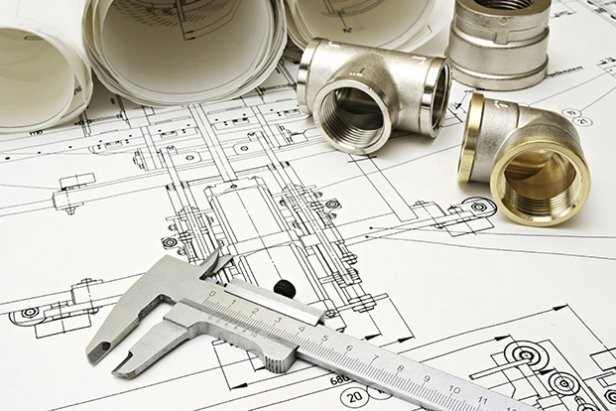
Being great at basic math, metric system, blueprint reading and geometry will give you extra points among other candidates for the job, whose ACT marks are below the average levels and are lower than yours. But even if we don’t take into consideration your competitiveness on the labor market of plumbing services and ability to enter professional training programs and courses, it’s obvious that you won’t go too far without proper math skills in the everyday work as a plumber. So, that should be your greatest motivation to study.
Also, if you haven’t got a high school diploma, you may also pass several exams to receive its GED equivalent, which is acceptable to continue further training in order to become a plumber and operate legally.
Step 2. Professional training
School education is your foundation, but it’s doesn’t provide enough highly specialized plumbing knowledge and skills. And although it’s not obligatory to have a college degree in order to become a certified plumber (at least, in most of the states), it’s better to go through professional training programs and maybe take a college course or finish a technical school to get acquainted with plumbing industry and learn how to provide according services, troubleshoot numerous problems, plan and install plumbing systems of various kinds.

Moreover, doing great at this stage will be quite beneficial for you when it comes to the next step of training and obtaining a license. The fact is that apprenticeship plumbing programs are competitive, so lower grades in your previous education may jeopardize your ability to enter them, and, consequently, ruin your career plans and aspirations. Besides, presenting certificates confirming the fact that you went through such preparation courses is one of the admission requirements adopted by some of the state apprenticeship programs as an addition to your school education.
More importantly, customers are more willing to trust a well-educated specialist, so keep that in mind if you’re hoping and planning to open your own plumbing business someday.
Step 3. Apprenticeship program for a plumber
While college degree and technical school diploma aren’t mandatory in some states, you’ll definitely have to go through this state program to be able to apply for a license and become certified plumber. It will give you an opportunity to expand your plumbing knowledge, develop according skills, receive your working experience as a plumber and learn from the experience of highly qualified professionals – master plumbers.
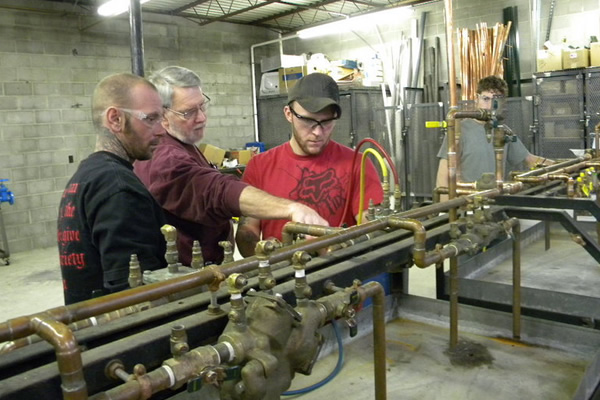
You have to be 18 (in some cases – 17) year old high school graduate to be able to enter the program. Obviously, you can be older than that. As I’ve already mentioned, additional post-graduate courses might be required in some states, so check out all specific terms and conditions, which are valid in your sate.
Step 4. Completing the necessary number of training hours
As an apprentice plumber, you’ll have to go through at least 144 hours of related classroom subjects together with the right amount of the on-job training. Plumbing trade unions normally offer those, but accredited vocational programs we’ve talked about before will do as well.
And, to be accepted as an apprentice and work with a master plumber, you’ll have to meet not only education requirements, but also some additional demands, which include a valid driver’s license, clean criminal and driving record and drug testing. Then, you have to contact a master plumber to find out whether he would like to recruit a helper and ask him to consider your candidacy. It’s possible to check out a local trade union to meet qualified plumbers and make them such offer. If that’s not an option, visit HireRush.com to scroll through the business profiles of professional working plumbers to see if they’re opened for such suggestions and call them directly from the site.
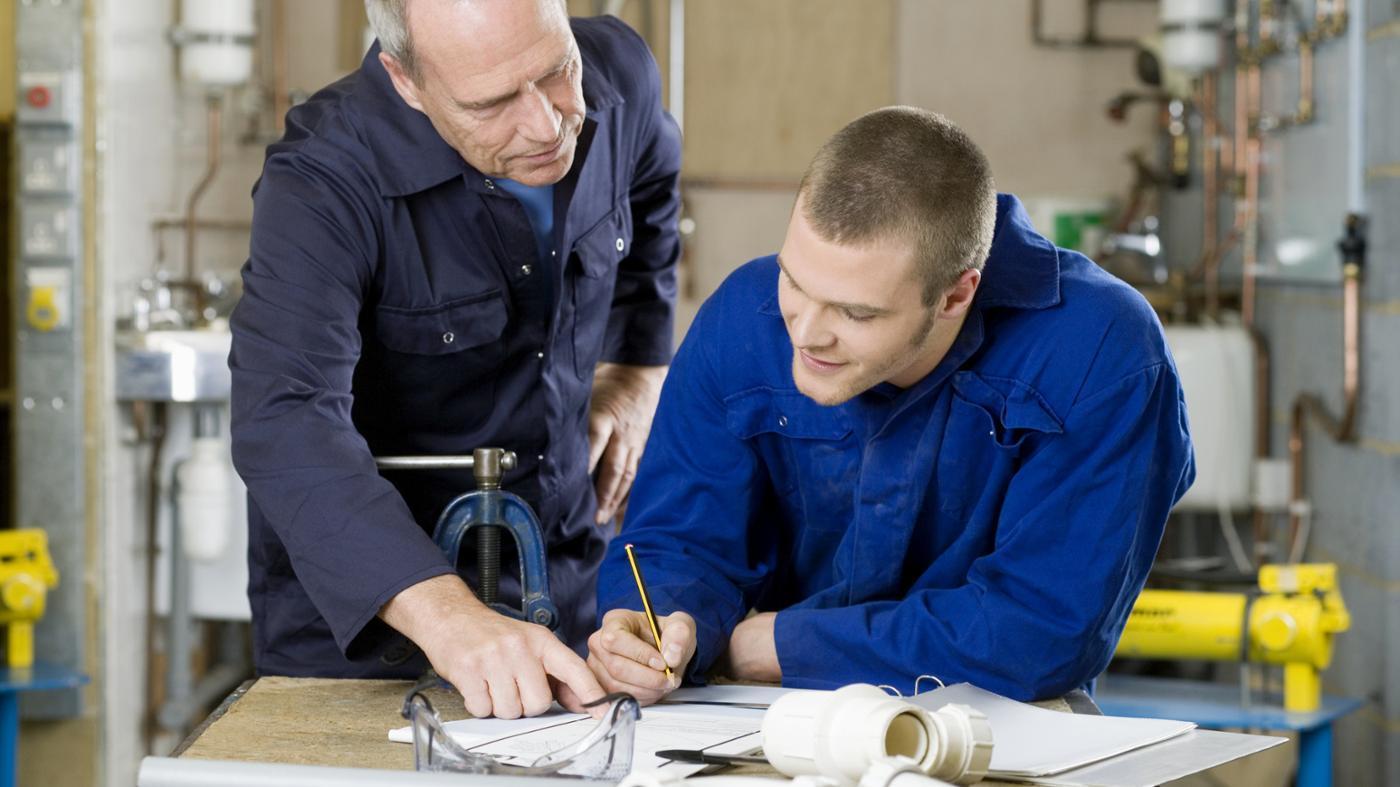
Usually, it takes from 4 to 5 years to complete these two steps, but the good news is that you can already work as the helper of a master plumber and earn some money from that. Don’t be too shy to ask your mentor for affidavit, recommendations and references, as they’ll help you in your future career.
Step 5. Taking an exam
Once you’ve completed that long professional training process, it’s time to take the state exam for journeyman plumbers. Make sure to collect all signed papers proving the fact that you went through the educational courses, state apprenticeship program and got enough hours of the on-job practice to register for a test. Don’t forget to bring an affidavit, signed by a master plumber you’ve worked with.

Prepare for the examination, take practice tests, review all the materials and receive the highest scores. All applicants who’ve passed an exam and paid a stated fee will automatically receive a license of a journeyman plumber, which has to be renewed every single year.
Step 6. Applying for and receiving a license of a master plumber
Again, different states have different rules and regulations, but, most commonly, you’ll have to work from 3 to 5 years as a journeyman plumber to be able to apply for a master plumber’s license. The application fee also ranges from $200 to $300, so make sure to fill in all necessary forms and pay that. Prepare for another exam, paying attention to local codes and regulations regarding plumbing activity and services. Review materials on plumbing practices according to the outlines of an exam, provided by your state.

Get tested; receive your precious license you’ve worked for so hard and start operating as a master plumber. Now your options are wider than ever: you may either join an existing plumbing firm, or open your own one or register on various websites to provide your services as an independent plumber.
